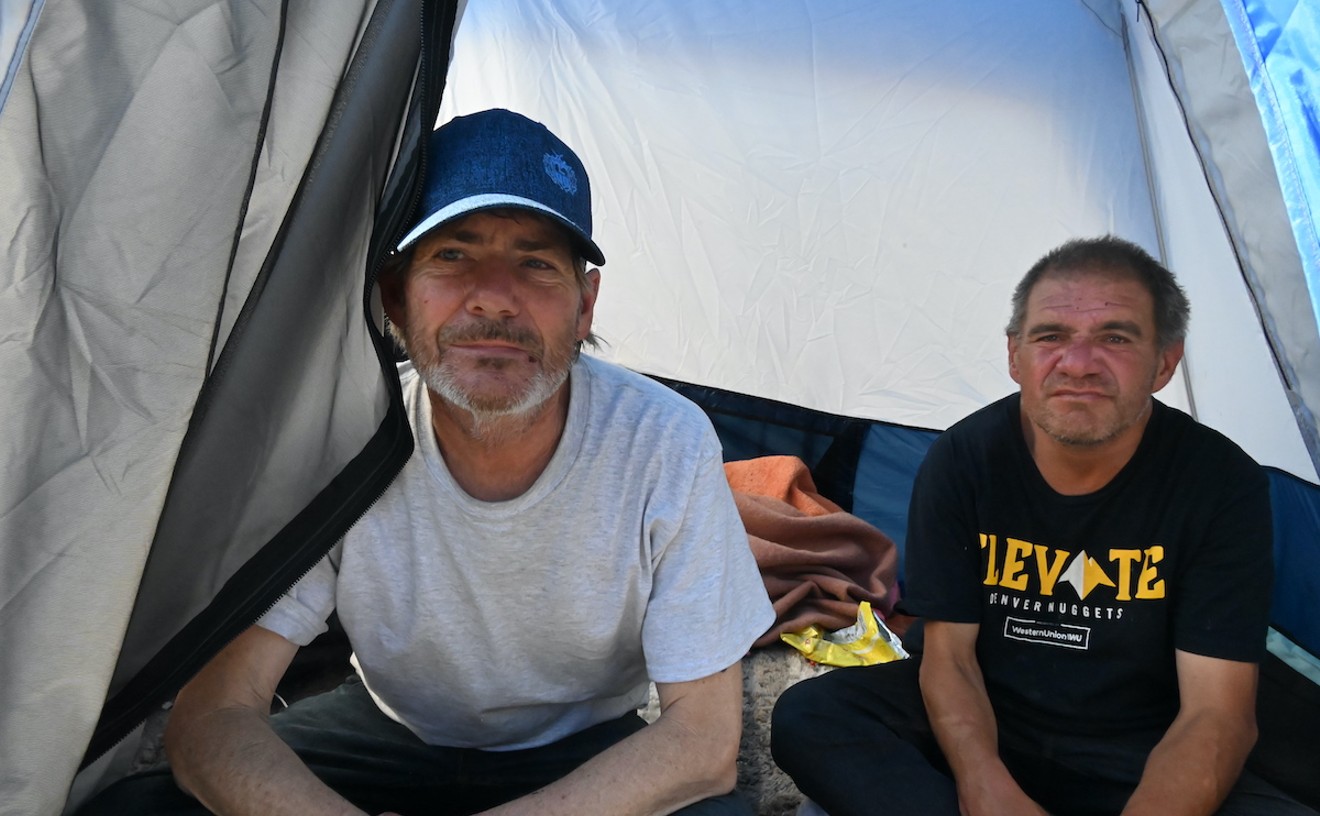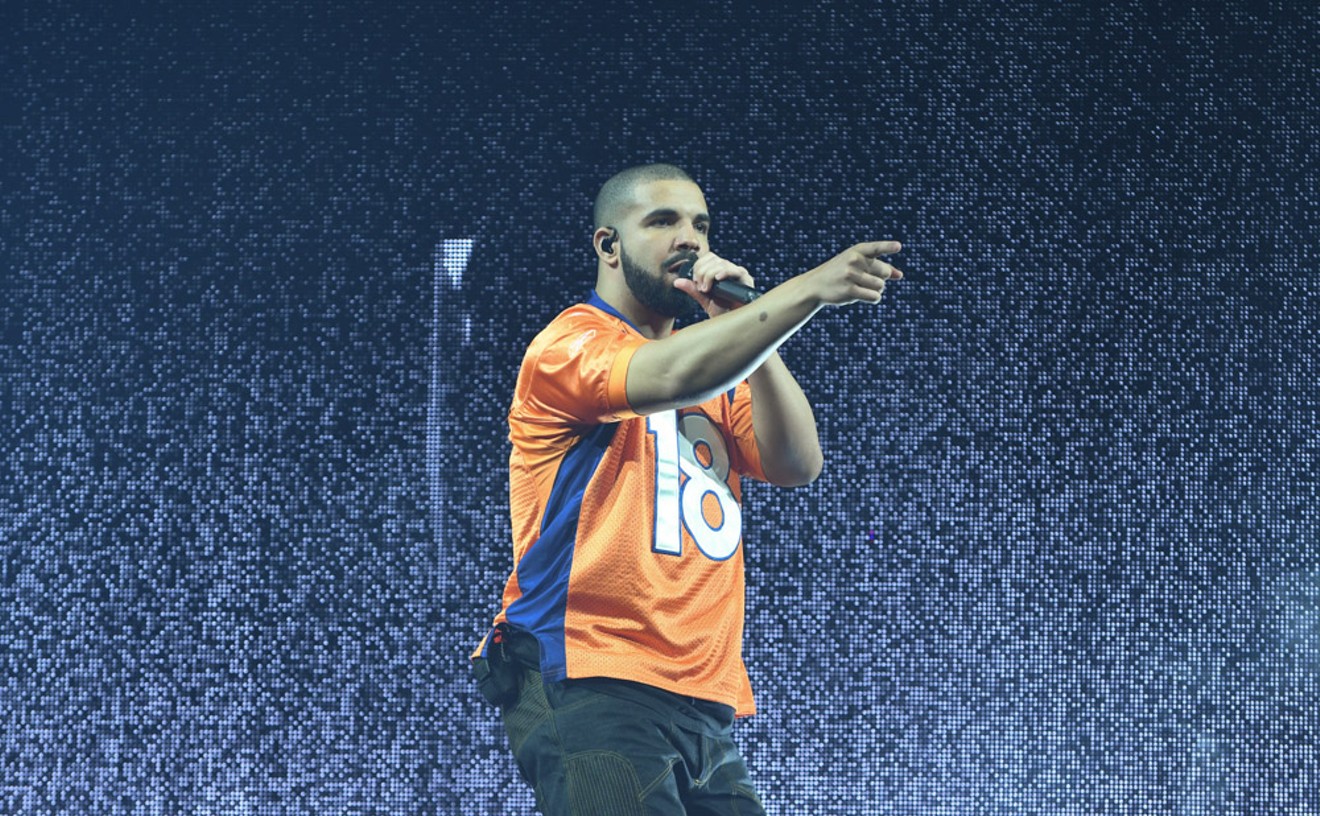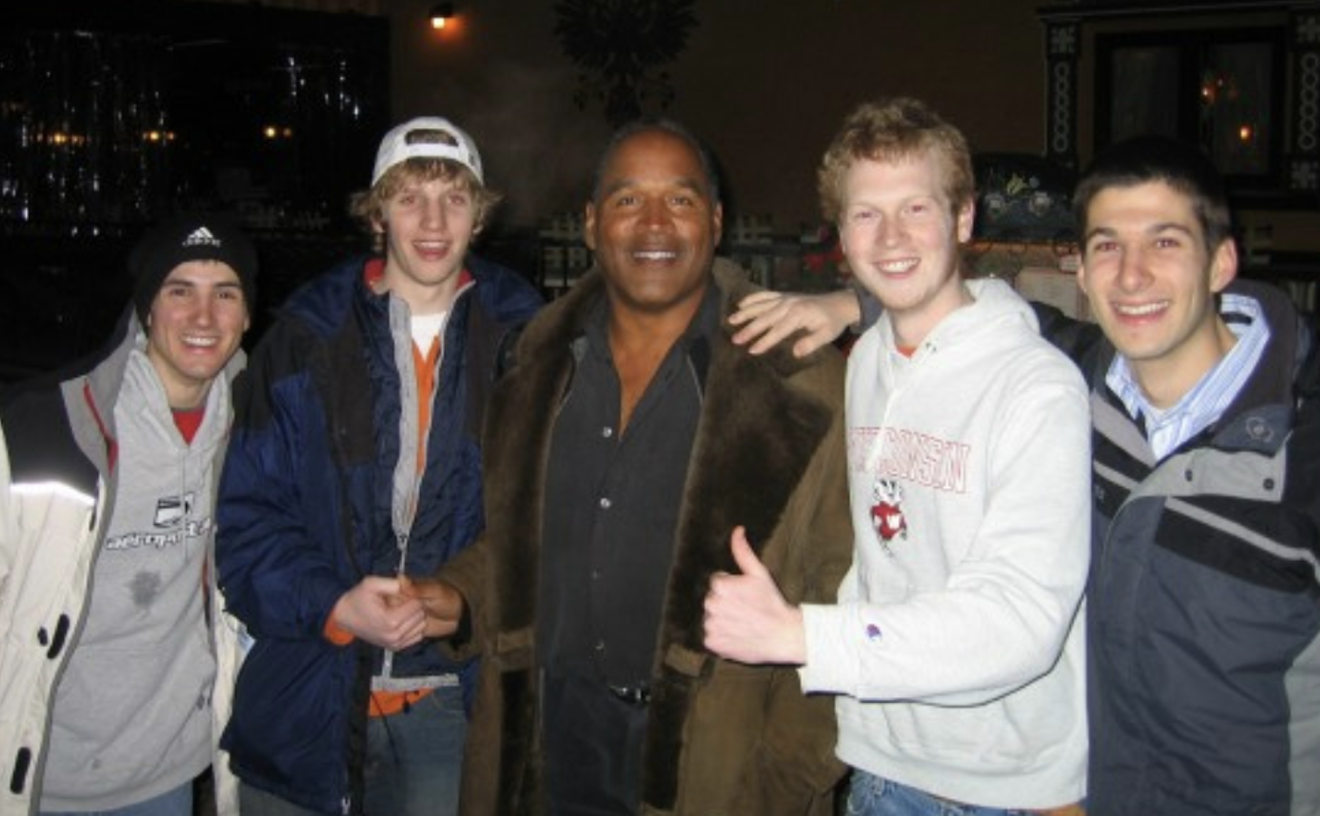Christian Lander is a true Internet-generation success story. Just over a year ago, he launched a website called called Stuff White People Like, and in short order, he became a media sensation -- an unexpected turn on which he's wisely trying to capitalize. He penned a book entitled Stuff White People Like: A Definitive Guide to the Unique Taste of Millions that shot up the New York Times bestsellers list with lightning speed. As he reveals in the following Q&A, conducted in advance of his appearance at 7:30 p.m. tonight at the Boulder Bookstore (click here for the details), he's hoping its success will catapult him into a career as a comedy writer -- and if he's an anonymous scribe, as opposed to a recognizable celebrity, that's fine.
Enjoy the conversation after the jump.
Westword (Michael Roberts): Moments ago, Barack Obama took the oath of office to become the 44th president - and although it might seem ironic that the first thing I'm doing after that is interviewing the author of Stuff White People Like, Obama is number eight on your list. So I guess there's no irony at all...
Christian Lander: No. In actuality, I think they're going to make this a holiday called National White Person Pat Yourself on the Back Day.
WW: Your entry reads: "White people like Barack Obama because they are afraid if they don't, they will be considered racist" - and like a lot of the humor in the book, that comment cuts both ways, doesn't it?
CL: Absolutely. There didn't need to be anything more in there than that. I think that explains it all.
WW: What's your guess about the percentage of white people who really like Obama for that reason, or at least partly for that reason. Is it a sweeping majority or a smaller percentage?
CL: It's tough to really say, because you have to find a number of white people who've actually listened to him, which is not as high as you think.
WW: How so?
CL: Well, ask a white person what Barack Obama thinks about gay marriage, and you'll probably get a good idea about how few of them have actually listened to them. So it's tough to tell how many have listened and how many have projected what they want to believe onto him, and they're just sort of hoping that it's true.
WW: So the effect is sort of like the Will Smith character in that golfing movie with Matt Damon...
CL: The Legend of Bagger Vance...
WW: Right. Does the magical effect of his goodness overwhelm everything in its path?
CL: Yes. That's what seems to be the case. I think it's fantastic that he's been elected. It's an amazing, amazing event. But there are certainly a lot of people who've projected more on him that perhaps is really deserved.
WW: Some people have characterized the election as proof that we're entering a post-racial period in our history, which might make the timing of your website and book seem problematic. But I gather you don't buy that theory...
CL: No. If we're entering a post-racial world, we really wouldn't be talking so much about his race. So no, I definitely don't think we're in a post-racial world.
WW: But if post-racial means that we're able to joke about things like race, as you do, without it being offensive, maybe we're taking a step in the right direction. Do you see it that way?
CL: Sort of. From my experiences of growing up and my whole life, I don't know if it's necessarily being post-racial. I think it's recognizing race as not being a negative thing. There are differences, and I think the book and all the spinoff sites that have come out after the site and the book are saying there are differences, and it's not racist to recognize these differences. It's racist to make judgments on these differences, and value one over the other, that's absolutely wrong. But to say someone's different, and they've had a different experience because of their racial or ethnic background, is not inherently a bad thing. And recognizing the differences can be as small as - well, one of the entries on the Stuff Asians Like website is, "Taking your shoes off." These are tiny things that are in there, but recognizing the differences, I think, leads to a better sense of understanding.
WW: And how boring would our lives be if the country suddenly became monolithic, and everyone suddenly decided that they liked and disliked exactly the same things?
CL: Absolutely.
WW: When did the idea for the website come up?
CL: Almost exactly one year ago. Today is the 20th, and on January 18, 2008, my friend Myles Valentin and I were having an instant-message conversation, and we were talking about the TV show The Wire. And Myles said - and Myles is Filipino - "I don't trust any white person who doesn't watch The Wire." And I thought that was pretty funny, and said, "What are they doing instead of watching The Wire?" And he came up with some things like going to yoga, getting divorced, going to plays. And I thought that was really funny - and I said, "Okay, blog-time." Because I was just looking for something fun to write, something fun to do as a side project. I only expected six or seven of my friends to ever read it. But all this stuff came out. It was a lot of fun, and then it blew up. It exploded in popularity.
WW: Obviously, it happened quickly - but how quickly? Are we talking about it taking over your life by the next week?
CL: It was by February. By February, it had been in all the media outlets. By the end of February, I had a literary agent. By the end of March, I had a book deal in place. And by July, it was on the New York Times bestsellers list. So it's been ridiculously overnight, ridiculously fast. I know how tough publishing is, and I know people who've spent years and years and years trying to get a book out. And mine comes out really, really quickly.
WW: You mentioned that you saw this as a side project. What was your main project before you started the site?
CL: My main project was just livin' life. I just wanted a side project, just something to do in my off-time. I'd dreamt of being a comedy writer all my life, and I've always written funny stuff on the side. I was hoping it would become a career but never expected it. But I was going to do this anyway, whether it became a career or not. I just wanted something funny to write to keep me doing what I love.
WW: What was your day job at the time?
CL: I was a copywriter.
WW: As this built, were the responses wholly positive from the start? Did everyone get the joke? Or was there a percentage of people who didn't get it?
CL: There are a number of people who do and don't get the joke in a number of ways. The responses have been interesting. The e-mails to the site are almost overwhelmingly positive, but a lot of the comments to the site are overwhelmingly negative, which sort of reinforces that theory about Internet anonymity turning people into jerks. The way most people don't get it is you'll have someone saying, "I'm white and I don't like sushi. I don't like the Prius. So this is racist. You're making statements about my culture that don't apply to me." Which I always find hilarious. I'm like, welcome to the reality of every minority on earth. And the other kind of people will take the position that stuff white people like is inherently stuff only white people can like, which is not true at all. It also depends on your reading. I know from spending too much time in graduate school that interpretation is very subjective, and it depends on the reader and what their objective in reading and all of that kind of graduate-school baloney. So those are the two main misinterpretations people have of the site.
WW: So you're not sitting here saying, "It's absolutely impossible for an African-American to like a Wes Anderson movie"?
CL: Absolutely not. The bigger statement - and I grew up in Toronto, Canada, which is a super-multi-cultural city - is that all of these things on this list apply to a group of white people who desperately want to think that they're post-racial and all-inclusive. And the class they belong to is the ultimate mosaic class. But you step back from that and look at everything, all of these things in our society as a whole are fundamentally branded white. And so I would see other classmates who were second- or third-generation Asians in Toronto who really like shorts and camping, and they would get called a banana by their Asian peers because they were acting white.
So it was fun for me to take all these things and say, "You can like all these things if you're not white. But chances are" - and these aren't my judgments, but the judgments of society - "that if you do, you'll be accused of acting white if you like these things." And what's that say? What's the deeper meaning behind that? What's it say that in order to like these things, it presupposes that you have enough money to care about these things. And you've sort of gone beyond wealth. You're not really concerned about the accumulation of material wealth. You're far more concerned with the accumulation of cultural wealth, or environmental wealth, or other status symbols that aren't attributed to true capitalism.
WW: How autobiographical is the list? And by that I mean, how many boxes from the list at the end of the book would you check? Things that you legitimately like, even though you're kind of needling white people for liking them at the same time?
CL: I think that's another reason why the site got so popular. I visually attacked myself through all of this. The only thing I don't like - I don't like anything related to camping and nature stuff. Camping trips, all that kind of stuff, it's not my style. I like the city. I'm glad nature exists. I just don't want to have to go there. So that's the only thing on the list that I'm not really a part of. Everything else I'm particularly guilty of, and I sort of use the site to attack so much of the pretentiousness I have inside me.
WW: So when you're writing something like the diversity item, in which you talk about white people loving diversity only as it applies to restaurants - is that something you recognized in yourself? And have you tried to change anything about that point of view after coming to that realization? Or do you embrace that viewpoint?
CL: There's a sense of helplessness with some of this that comes out. I see this, and I wish I knew what I could do, but I don't. I think all I need to learn how to do is stop being such a jerk about taking so much pride in the diversity of my city, but only as it relates to restaurants. You know? It's very funny that people have this love of diversity in the city, but they can't find anything else to justify it other than restaurants. And I can't lie. I love the restaurants in L.A. I love the choices that I have. But I recognize that it sort of puts a fetish quality to it that's ridiculous. So I'm doing my best, but I don't really know what I can do about it.
WW: Where I was going with that question is, if people read this book and recognize themselves, it's not necessarily a bad thing. It might be a good thing, because they'll see where their motivations are coming from, and be able to look at things from a different perspective.
CL: Absolutely. One of the things that I hope to get out of this, and that I've picked up on, is it's the unique taste of millions in a lot of this stuff. And people need to realize that defining yourself by a series of tastes ultimately makes you a stereotype. And to recognize that your personality goes beyond what music you listen to and what foods you do not eat is an important way to move forward, and step away from this ridiculous status struggle that we're sort of engaged in.
WW: Is the whole Nick Hornsby concept from High Fidelity - that you are what you consume - is maybe a bit too true from your standpoint? Would it be a better thing if we deepened ourselves up a little bit?
CL: Sure. Deepen yourself up a little bit, and don't necessarily waste so much of your energy judging people. This is one of the things that I really wish I could do, and I'm trying to get better. It doesn't matter that this person has a Danielle Steel book. It doesn't matter that they have a Celine Dion CD. Don't make judgments on this. I'm trying on this. It's not always working, but I'm trying.
WW: If you succeed, your entire career may be altered in the negative...
CL: Exactly - although I don't think I'll succeed at that. But the whole Hornsby thing comes back to this class thing. You've had so many of your needs and wants taken care of that you can devote your entire energy to making sure that your tastes are the most immaculate in films and video games and music and things like that. And I think there's something to be said about that.
WW: You mentioned earlier that the first complaints many people will level against your website are, "I don't like this, so therefore, this is racist." And when I looked at the list, the number one item is coffee, which I despise, because I think it tastes terrible. I guess I have to ask: Am I an embarrassment to white people?
CL: Yeah. Pretty much. Not like all white people, but a fair amount. It's important. I mean, how are people going to have daytime meetings with you?
WW: You're right. I've completely screwed up the social interaction of white people by not liking coffee.
CL: You do like tea, right?
WW: If forced to drink a hot beverage, I'll drink tea. But I'm not all that wild about tea, either.
CL: Hopefully, you work late nights. Because your daytime social activities are rapidly falling apart.
WW: What's next for you? Are you looking at working on other websites, or devoting yourself to this one? Or are you looking at writing comedy for another medium - perhaps on television?
CL: I'm definitely looking at comedy on television. I'll never be able to follow this. I'm very aware of that. I'll never be able to top the broad appeal of this site and this book. So I'm really hoping to use it to become an anonymous comedy writer in Los Angeles.
WW: And how goes that mission?
CL: It's going pretty well, I think. Nothing's locked in yet. I'm going on tour for the book again and I have things developing, but I don't really want to say what they are because I'm afraid I'll jinx it. And things fall apart all the time in Los Angeles. But I have a great agency behind me and I'm really hoping something will come of it. And if it doesn't happen, it definitely means I didn't have the talent to make it. Because if I can get this much attention and not find a job writing comedy, then I certainly was never cut out for it.
WW: You talked about having inspired a number of different sites. What are the ones that have popped up since your site launched?
CL: I've lost track of the list. Stuff Educated Black People Like, Stuff Asians Like, Stuff Latinos Like, Stuff Gay People Like, Stuff Gay Parents Like, Stuff Hill People Like, Stuff Journalists Like, Stuff Hollywood Assistants Like, Stuff Hipsters Like, Stuff White People Don't Like, White Stuff People Like... There's a lot. There is a lot.
WW: Is there any pride in what you've spawned? Or is it more shock and awe?
CL: It's unbelievable. Some sites have come up that aren't so positive - that are taking a very literal racist approach to it, and that shames me. But the ones that are being done right, that are being written from the inside perspective to help educate about their culture - I think that's fantastic. It opens up the door to say, "Let's talk about these differences." And not all these differences have to be massive. They don't have to be about income gaps or education gaps or things like that. Those are valid points, but people have a lot of problems talking about them. These sites open it up to talk about the banal things that make up these cultures. So I'm really glad people are doing it, and I think a lot of them have worked out and are really funny.











